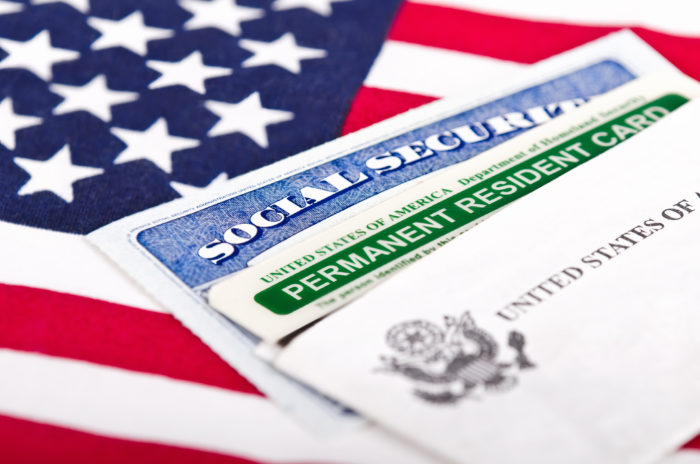Undocumented immigrants contribute to the growth and success of the American economy. In 2017, roughly 29 million immigrants were working in the U.S., making up 17% of the workforce. Most people agree that whether they are undocumented or living legally in the country, undocumented workers fill jobs that citizens do not want. These include heavy jobs such as construction, farming, and hospitality.
According to the Pew Research Center, the U.S. has more immigrants than any other country in the world. If you’re an undocumented immigrant sitting at home with work injuries and wondering if you qualify for workers’ compensation in Florida, worry no more.
You have the right to receive workers’ compensation benefits. Your immigration status has nothing to do with obtaining these benefits. Our Florida workers’ compensation attorneys at Sternberg | Forsythe, P.A. want to protect your rights. In this article, we’ll cover:
- The Florida workers’ compensation system
- Undocumented workers’ compensation benefits
- The actions an undocumented worker can take to receive benefits
First, let’s talk about how Florida defines undocumented immigrants and why you are eligible for workers’ comp benefits.
Florida’s legal definition of “employee” includes undocumented immigrants
Workers or laborers born in other countries and not permanent residents of the U.S. fall under the definition of “employee”, according to Florida law.
Florida Statute 440.2 says that an employee is a person who gets paid for their work, even if the person is an alien. Every employee, no matter their citizenship status, is entitled to workers’ compensation benefits if they receive an illness or injury on the job.
How does the Florida workers’ compensation system work?
Workers’ compensation or “workers’ comp” is a form of insurance purchased by employers to cover the costs of job-related injuries and illnesses that their employees may experience.
Most employers, like those in construction and agriculture, have to carry workers’ compensation insurance to cover injuries of all workers, even if they are undocumented immigrants.
The Florida workers’ compensation system ensures that Florida workers’ compensation laws are followed by workers, employers, medical providers, and insurance companies.
The system exists to make sure that workers’ compensation claims for the following benefits are properly reimbursed:
- Medical expenses
- Lost wages from taking time off of work
- Work injuries resulting in death
To make the system work, two steps must happen:
- Employee reports the injury: Whether you’re undocumented or not, you have to report your injury or illness to your employer within 30 days. Failure to report will jeopardize your workers’ comp claim.
- Employer reports the injury: Next, your employer has seven (7) days to report your injury to their workers’ comp insurance company. After this, you deal with the insurance company.
We never recommend walking through this process without an experienced Florida worker’s compensation attorney. Workers’ compensation claims are complicated in general, and your undocumented status introduces additional risks.
Undocumented immigrants may risk deportation when filing workers’ compensation claim in Florida

In the U.S., an employee’s identity and work eligibility must be verified using the Form I-9, Employment Eligibility Verification.
The Immigration Reform and Control Act (IRCA) of 1986, where the Form I-9 requirements stems from, makes it illegal for U.S. employers to:
- Hire anyone without verifying their identity first
- Hire a person who is not properly authorized to work
- Continue employing a person knowing that he or she is unauthorized for work
For employers who do the above, the penalties range from $250 to $10,000. Additional penalties may also include up to six months in prison.
In 2003, Florida workers’ comp law made it a felony to use fake identification in obtaining a job and filing a workers’ comp claim. So if you’re an undocumented immigrant worker and you provide a false social security number to your Florida employer, you can lose your job, your workers’ comp claim can be denied – and you also risk deportation.
The purpose of this 2003 Florida law is to prevent fraudulent workers’ comp claims. But Florida insurance companies and employers began taking advantage of the law and have been using it to report undocumented immigrant workers so they can avoid paying for their work injuries.
In these fraud cases, Immigration and Customs Enforcement (ICE) can be brought in to arrest and deport injured, undocumented employees. In many cases, they are deported before receiving medical treatment and before they can receive their workers’ compensation benefits.
This has put a strain on Florida’s legal system as it allows employers and insurers to cheat undocumented immigrants like you out of workers’ comp benefits.
Our experienced Florida workers’ comp attorneys can help undocumented immigrants balance the risks of filing a claim
Don’t count on your employer and its insurance company to help you with your injury. They are not on your side. Instead, speak with our knowledgeable Florida workers’ compensation attorneys to get help with filing your workers’ compensation claim the right way, with minimal risks.
Having Sternberg | Forsythe, P.A. in your corner will help to ensure that you’re treated fairly as an undocumented, injured employee in Florida. Call our offices today or contact us online for a free consultation.

